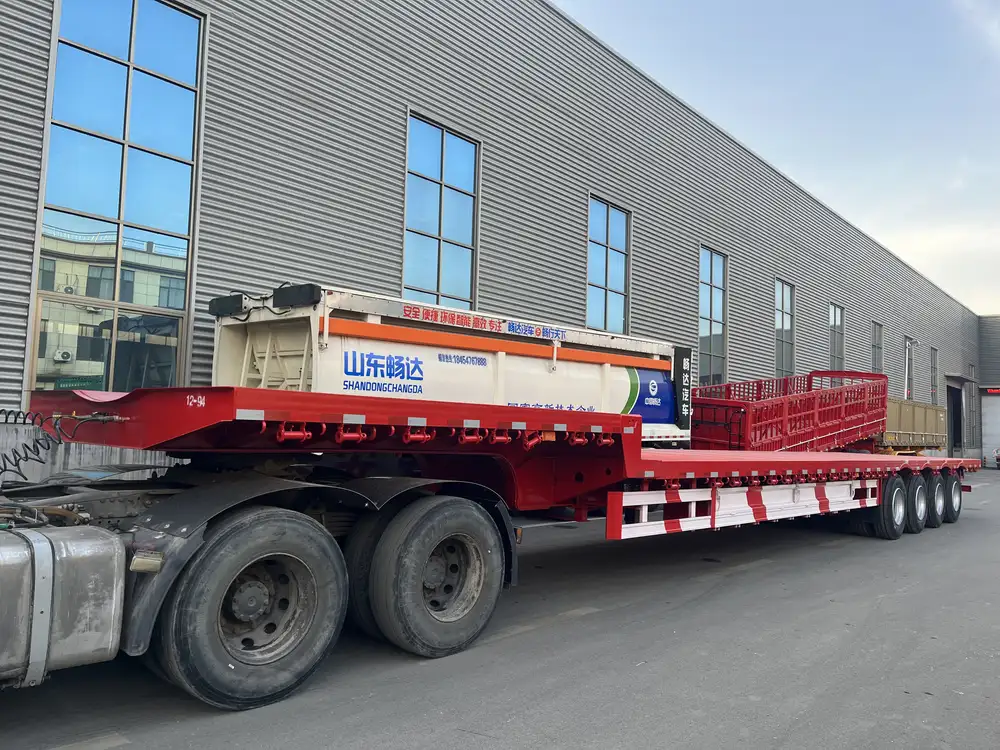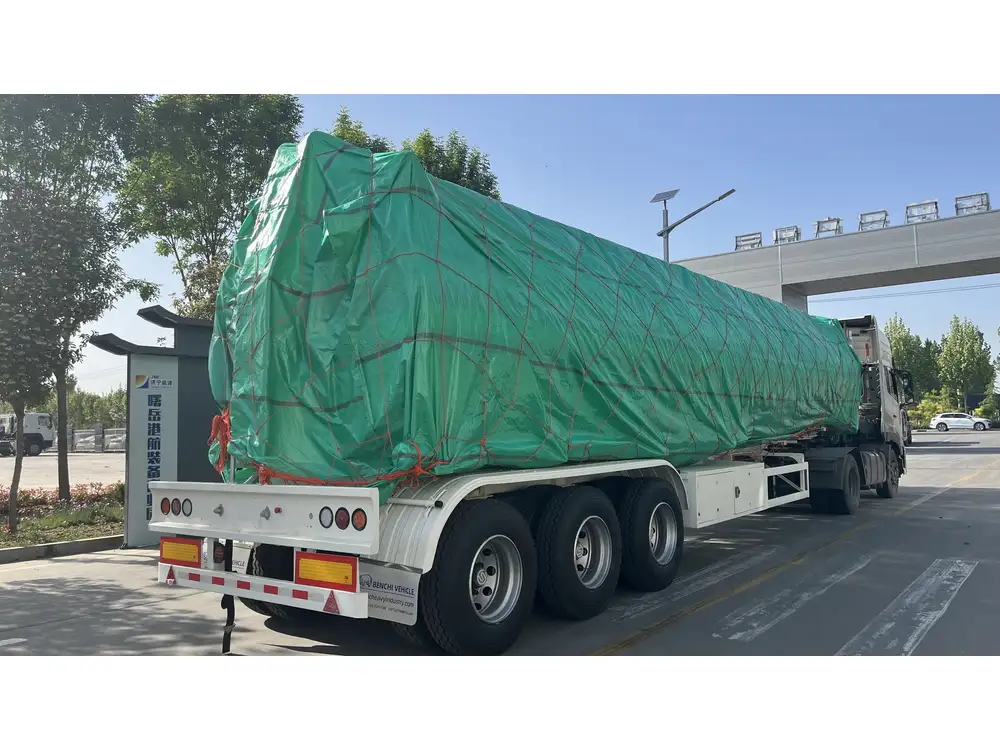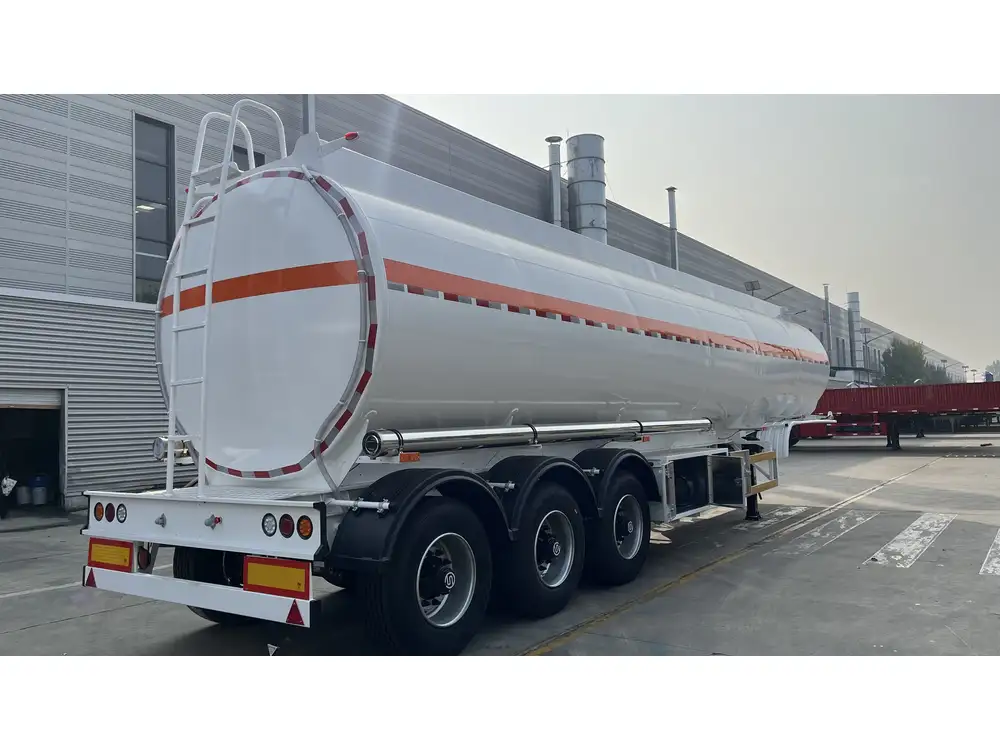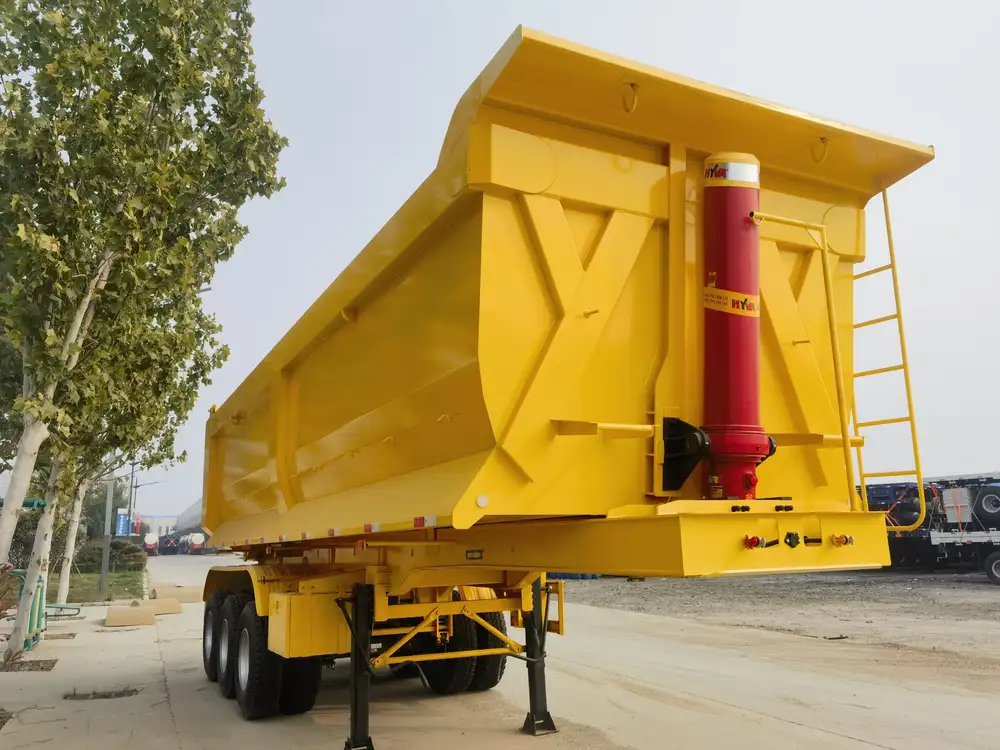Selecting the right semi-trailer tires is crucial for ensuring safety, maximizing cargo efficiency, and optimizing operating costs. The demand for durability, load capacity, and performance is paramount, given the wear and tear semi-trailers face on the road. This guide will explore various avenues to buy semi-trailer tires, highlighting essential factors to consider to make informed decisions that align with your operational needs.
Understanding Semi-Trailer Tire Specifications
Before diving into where to buy trailer tires, it is vital to understand the key specifications that define tire performance:
| Specification | Description |
|---|---|
| Load Index | Indicates maximum load capacity per tire. |
| Speed Rating | Maximum speed a tire can sustain safely. |
| Tread Pattern | Influences traction, handling, and wear resistance. |
| Construction Type | Bias-ply vs. radial tires, affecting flexibility and strength. |
| Tire Size | Specified in a standard format (e.g., 11R22.5). |
Understanding tire specifications is not only crucial for legal compliance but also for enhancing fuel efficiency, reducing costs, and prolonging tire life.
Where to Buy Semi-Trailer Tires

1. Local Tire Retailers
Local tire retailers typically offer a wide array of semi-trailer tires from different brands. Their proximity offers convenience and immediate product availability, and most have knowledgeable staff who can assist in selecting the appropriate tire based on your needs. Here are some advantages and disadvantages:
| Advantages | Disadvantages |
|---|---|
| Personalized customer service | Potentially higher prices |
| Immediate purchase and installation | Limited selection |
| Local support and follow-up | Stock may vary |
2. Online Tire Suppliers
The internet has revolutionized shopping for semi-trailer tires. Numerous online retailers offer competitive pricing and extensive product descriptions.
Top Online Suppliers
- Tire Rack: A leading retailer that provides detailed reviews and ratings for various brands.
- Truck Tire Center: Focused exclusively on commercial truck tires, emphasizing durability and performance.
- Amazon: Increasingly becoming a hub for various tire choices, with user reviews guiding decisions.
Pros and Cons of Online Shopping:
| Pros | Cons |
|---|---|
| Broader selection at often competitive prices | Shipping costs and potential delays |
| Access to customer reviews | Installation may need to be arranged locally |
| Convenient price comparison | Return policies may vary |

3. Wholesale Tire Distributors
For fleet operators or those needing to purchase in bulk, wholesale distributors offer significant savings. They can provide brands at lower prices than traditional retailers because they sell in larger quantities.
Considerations When Working with Wholesalers:
- Minimum Purchase Requirements: Many require bulk purchases.
- Shipping Arrangements: Weigh shipping costs against savings.
- Customer Support: Larger orders should include reliable support for any defects and warranty claims.
4. Manufacturer Direct Sales
Some of the biggest tire manufacturers allow direct purchases through their websites. Here’s why this might be advantageous:
- Authenticity and Warranty: Buying directly ensures you receive genuine products backed by full warranty coverage.
- Tailored Advice: Manufacturers often provide direct recommendations based on your specific operational requirements.

Manufacturers to Consider:
- Michelin: Known for durability and all-terrain capabilities.
- Bridgestone: Offers a wide variety of tires tailored for various loads and weather conditions.
- Goodyear: A long-standing reputation in the trucking industry for reliability and performance.
5. Fleet Services and Tire Dealers
Many local truck service centers provide tire installation services, often with competitive pricing on tire purchases. They may offer additional benefits:
- Full-Service Packages: Combining tire purchase with maintenance services such as alignment and rotation.
- Fleet Discounts: Special rates for businesses managing large fleets that need regular tire replacements.
6. Used Tire Distributors
While not recommended for long-term investments, buying used tires can be a cost-effective strategy for short-term or emergency needs. Caution is advised here regarding quality and safety.

Tips for Purchasing Used Tires:
- Thoroughly inspect tires for wear, cracks, and bulges.
- Confirm the tires’ history and warranty, if available.
- Ensure compatibility with your semi-trailer’s specifications.
Factors to Consider When Buying Semi-Trailer Tires
Tire Performance and Safety
Investing in high-quality tires is non-negotiable when it comes to safety on the road. Look for tires that deliver excellent grip, especially in various weather conditions.

Cost vs. Value
A lower price may initially seem appealing, but consider the long-term impact on fuel efficiency. Premium brands often last longer and contribute to lower operational costs over time.
Warranty and After-Sale Support
Review the warranty terms carefully. A comprehensive warranty can provide peace of mind and reduces long-term costs associated with tire replacements.
Frequently Asked Questions (FAQs)

1. How often should I replace my semi-trailer tires?
Regularly check tire tread depth, and once it reaches 2/32 inches, it’s time for a replacement. Additionally, consider replacing tires every five to six years, regardless of tread wear, due to aging materials.
2. What is the best tire for my semi-trailer?
The best tire depends on your specific needs: load capacity, road conditions, and driving habits. Radial tires generally provide better durability and fuel efficiency compared to bias-ply tires.
3. Can I mix different brands of semi-trailer tires?
Mixing brands is not usually recommended. Different tire patterns can lead to inconsistent handling and uneven wear. Ideally, use the same brand and model across all axles for optimal performance.

4. How do I ensure my tires last longer?
Regular maintenance, including checks on air pressure, tread wear, and proper alignment, can significantly extend tire life. Rotate tires as recommended based on usage patterns.
5. Are there specific tires for winter driving conditions?
Winter conditions demand specialized tires. Look for tires designed with features specific for wet and icy conditions, ensuring maximum grip and safety.
Conclusion
When it comes to purchasing semi-trailer tires, a plethora of options are accessible from various sources. By understanding the specific needs and requirements of your vehicle and operation, you can make a more informed and beneficial purchase. It’s not merely about making a sale; it’s about ensuring safety, efficiency, and longevity, with a range of buying options that match your operational rhythms.
Whether you choose local retailers, online suppliers, wholesale distributors, or manufacturer direct sales, the most critical factor remains your attentiveness to tire specifications, long-term performance, and cost-efficiency. Equip your semi-trailers with the right tires; your safety, efficiency, and profitability depend on it.



